
The National Electoral Council is one of the five branches of government of the Bolivarian Republic of Venezuela that was designed to be loyal to revolution. It is the institution that has the responsibility of overseeing and guaranteeing the transparency of all elections and referendums in Venezuela at the local, regional, and national levels. The creation of the CNE was ratified in Venezuela's 1999 constitutional referendum. Following the election of Nicolás Maduro into the presidency, the CNE has been described, by the president's opponents, as being pro-Maduro.
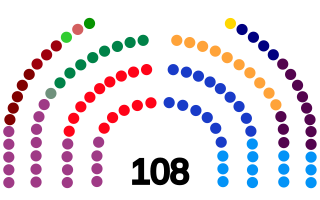
The Congress of the Republic of Colombia is the name given to Colombia's bicameral national legislature.

Elections in Chile are held nationwide, including the presidency, parliament, regional offices, and municipal positions. Chilean citizens and foreign residents with legal residency of at least five years, who are 18 years or older on election day, are eligible to vote. Previously, voting was voluntary, but since 2023, it has become compulsory.

Elections in Venezuela are held at a national level for the President of Venezuela as head of state and head of government, and for a unicameral legislature. The President of Venezuela is elected for a six-year term by direct election plurality voting, and is eligible for re-election. The National Assembly (Asamblea Nacional) has 277 members (diputados), elected for five-year terms using a mixed-member majoritarian representation system. Elections also take place at state level and local level.

The Patriotic Union or UP is a leftist, Colombian political party, founded by the FARC and the Colombian Communist Party in 1985, as part of the peace negotiations that the guerrillas held with the Conservative Belisario Betancur administration.
The politics of Catalonia takes place within the framework of its Statute of Autonomy, which grants a degree of self-government to Catalonia and establish it as an autonomous community of Spain with the status of a nationality, operating as a parliamentary democracy. The Generalitat de Catalunya is the Catalan institution of self-government, which includes the Parliament of Catalonia, the President and the Executive Council. The Parliament of Catalonia is one of the oldest in the world.

The Political Constitution of Colombia of 1991, is the Constitution of the Republic of Colombia. It was promulgated in Constitutional Gazette number 114 on Thursday, July 4, 1991, and is also known as the Constitution of Human Rights. It replaced the Political Constitution of 1886 and was issued during the presidency of the liberal César Gaviria, with ideas from the also liberal Luis Carlos Galán.
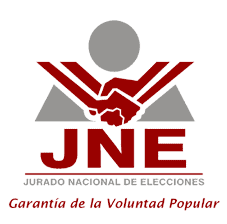
The National Jury of Elections of is an autonomous constitutional organ, headquartered in Lima, which serves as Peru's electoral court. Its goal is to oversee the legality of electoral processes, guaranteeing the respect for the population's will. Thus, it is the entity in charge of proclaiming the official electoral results and awarding recognitions or credentials to the elected authorities. Furthermore, it passes resolutions to regulate the electoral dispositions.

According to the Organic Law of Regional Governments, the regions are, with the departments, the first-level administrative subdivisions of Peru. Since its 1821 independence, Peru had been divided into departments but faced the problem of increasing centralization of political and economic power in its capital, Lima.

Politics of Valledupar refers to the political processes in the Colombian city of Valledupar in Cesar Department. The local politics of Valledupar take places within the framework of the Politics of Colombia which are based on a presidential system and representative democratic republic.

The 1983 Valencian regional election was held on Sunday, 8 May 1983, to elect the 1st Corts of the Valencian Community. All 89 seats in the Corts were up for election. The election was held simultaneously with regional elections in twelve other autonomous communities and local elections all throughout Spain.
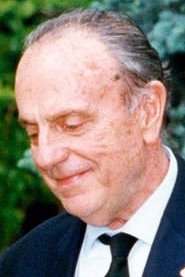
The 1993 Galician regional election was held on Sunday, 17 October 1993, to elect the 4th Parliament of the autonomous community of Galicia. All 75 seats in the Parliament were up for election.
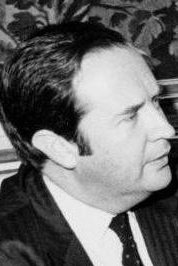
The 1991 Canarian regional election was held on Sunday, 26 May 1991, to elect the 3rd Parliament of the Autonomous Community of the Canary Islands. All 60 seats in the Parliament were up for election. The election was held simultaneously with regional elections in twelve other autonomous communities and local elections all throughout Spain.

The 1995 Canarian regional election was held on Sunday, 28 May 1995, to elect the 4th Parliament of the Autonomous Community of the Canary Islands. All 60 seats in the Parliament were up for election. The election was held simultaneously with regional elections in twelve other autonomous communities and local elections all throughout Spain.
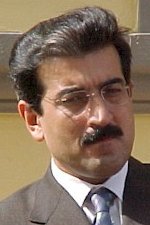
The 1999 Canarian regional election was held on Sunday, 13 June 1999, to elect the 5th Parliament of the Autonomous Community of the Canary Islands. All 60 seats in the Parliament were up for election. The election was held simultaneously with regional elections in twelve other autonomous communities and local elections all throughout Spain, as well as the 1999 European Parliament election.

The 1991 Barcelona City Council election, also the 1991 Barcelona municipal election, was held on Sunday, 26 May 1991, to elect the 4th City Council of the municipality of Barcelona. All 43 seats in the City Council were up for election. The election was held simultaneously with regional elections in thirteen autonomous communities and local elections all throughout Spain.

The 1983 Balearic regional election was held on Sunday, 8 May 1983, to elect the 1st Parliament of the autonomous community of the Balearic Islands. All 54 seats in the Parliament were up for election. The election was held simultaneously with regional elections in twelve other autonomous communities and local elections all throughout Spain.

Presidential elections were held in Venezuela on 20 May 2018, with incumbent Nicolás Maduro being declared re-elected for a second six-year term. The original electoral date was scheduled for December 2018 but was subsequently pulled ahead to 22 April before being pushed back to 20 May. Some analysts described the poll as a sham election, as many prominent opposition parties had been barred from participating in it. The elections had the lowest voter turnout in Venezuela's democratic era.
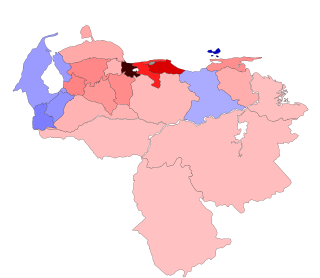
Regional elections were held in Venezuela on 15 October 2017 to elect the executive position of all 23 federal entities. This marked the first state executive election not held on the same date as elections for state legislatures, and the second separate from municipal elections. They were the 9th regional elections held in Venezuela since 1989.

Colombia Justa Libres is a right-wing Colombian political party founded in 2017 that groups the majority of evangelical denominations in the country together. This includes, among others, Assemblies of God, Foursquare Church, Peace Mission to the Nations, and Spring of Eternal Life. During the 2018 Colombian parliamentary election, four of its members were elected to the Congress of Colombia. After the 2022 legislative election, the party formed the Nos Une Colombia coalition with the MIRA. It has the slogan "Let's do it together!" and a youth wing known as "RUGE!".




















